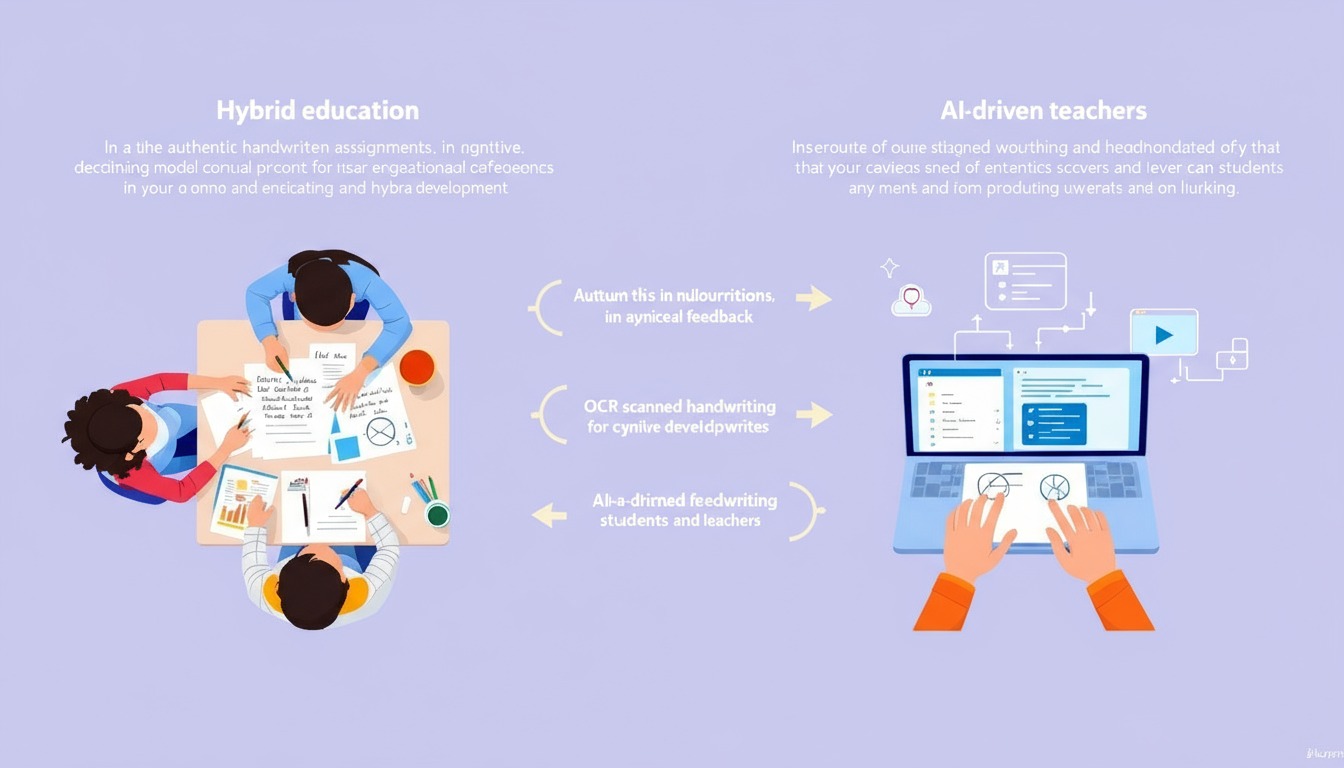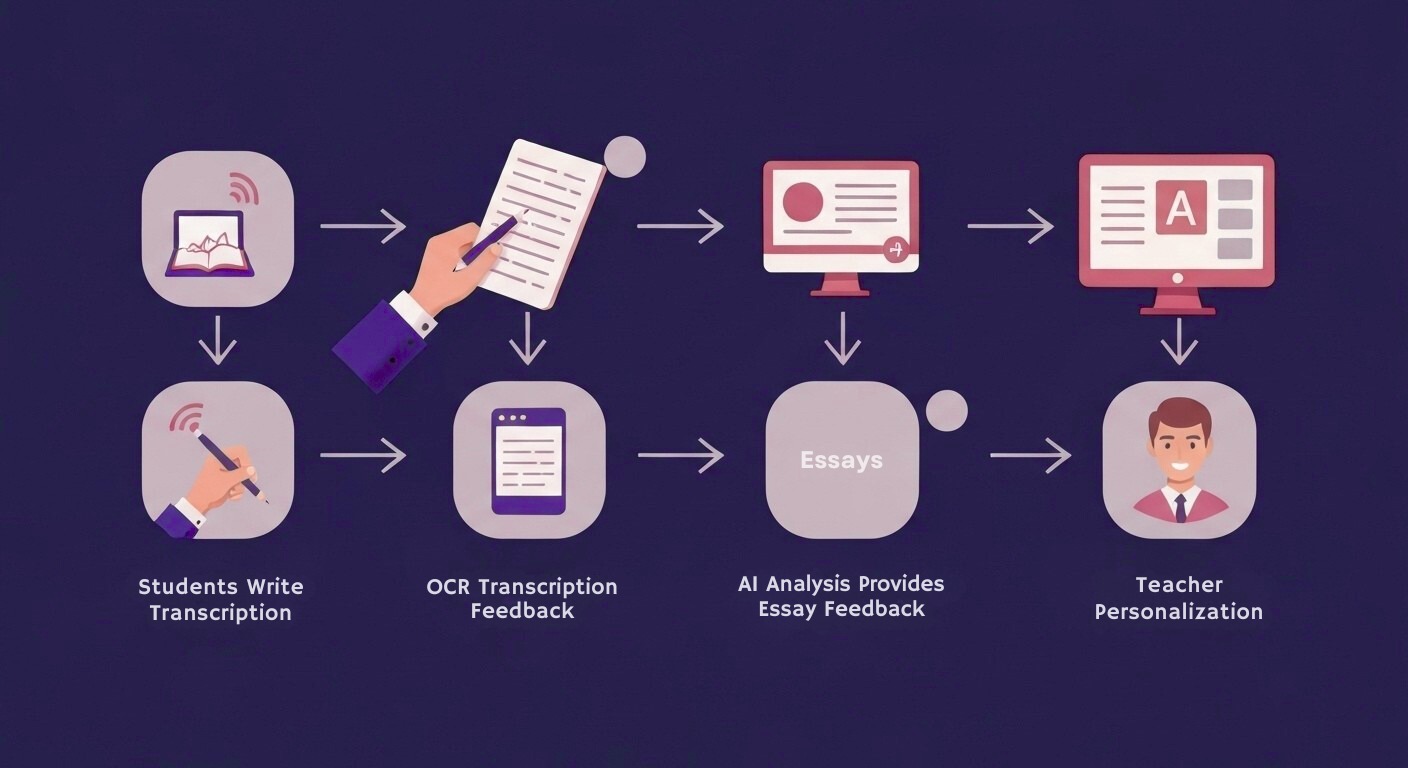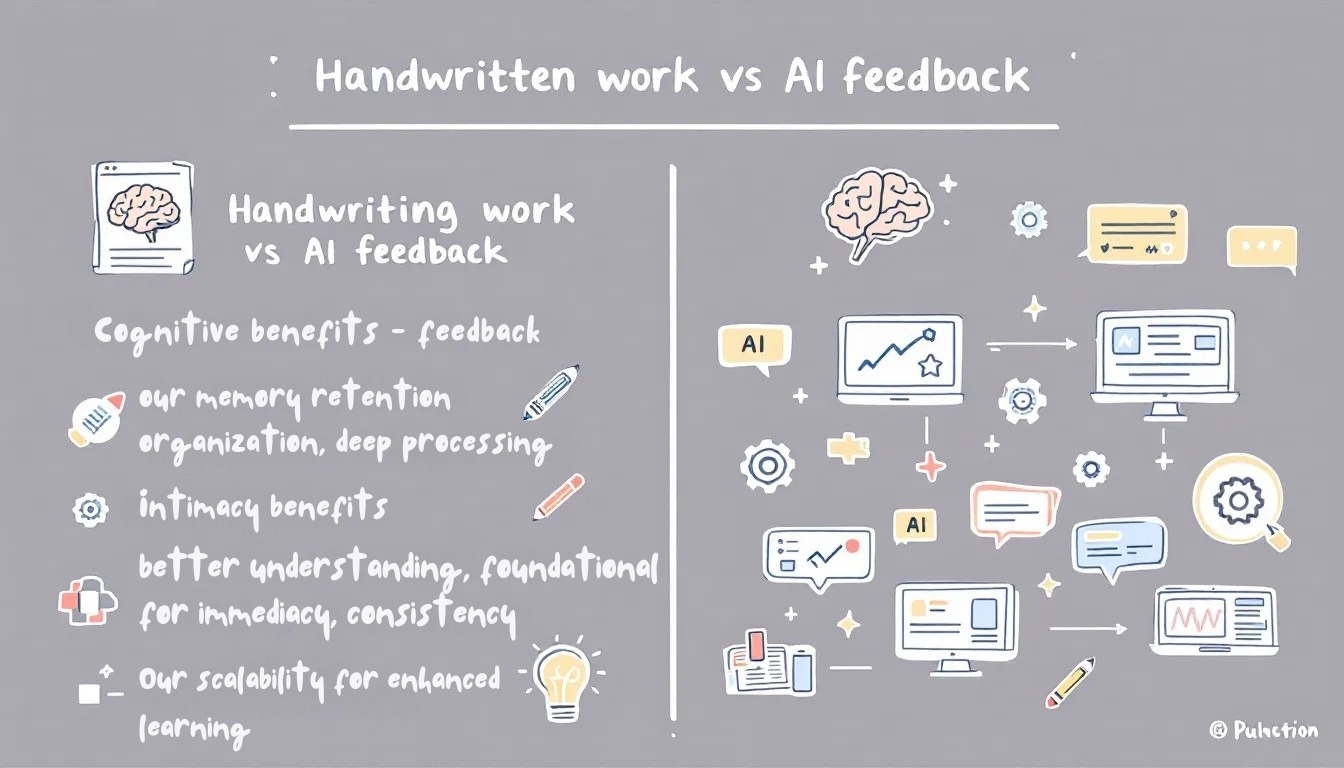In an age where technology is rapidly reshaping education, educators face a pressing challenge: how to maintain academic integrity while still leveraging the advantages of artificial intelligence. The rise of AI tools capable of generating entire essays in seconds has understandably led to a growing concern among teachers about plagiarism and academic dishonesty. As a result, many educators are shifting back toward handwritten assessments and in-person instruction as safeguards against misuse. This move is not a rejection of technology, but rather a necessary recalibration of how we incorporate it into learning. In fact, I argue that the best solution is a hybrid approach—students should produce handwritten work in class to ensure authenticity, but once that work is transcribed using Optical Character Recognition (OCR), AI assistant should be used to provide immediate, personalized feedback that supports learning and growth.

Handwriting assignments in a classroom setting offers an immediate barrier to plagiarism. Students can’t simply copy and paste from the internet, and AI assistants like ChatGPT can’t complete the work for them during timed, in-person tasks. These traditional methods restore a level of accountability that is harder to maintain in fully digital environments. Moreover, handwritten work engages different cognitive processes. The act of writing by hand improves memory retention, encourages deeper processing of information, and can even help students organize their thoughts more clearly. These are benefits we can’t afford to lose just because technology is more convenient.
But the value of AI assistants should not be dismissed simply because it poses new challenges. If anything, those challenges push us to use AI assistants more thoughtfully. When OCR technology transcribes handwritten work, it unlocks some of the most promising benefits AI assistants can offer—particularly in the area of assessment. Teachers feel overwhelmed. Grading essays is time-consuming, and despite best intentions, feedback often arrives too late to truly guide student improvement. AI assistants like Essay Eye can provide timely, consistent, and standards-aligned feedback that students can use to revise and improve their work. Used properly, AI doesn’t replace the teacher; it empowers them to do more of what matters—mentoring, conferencing, and guiding students through deeper learning experiences.

The hybrid model I’m advocating for preserves the authenticity and integrity of student work through in-person, handwritten assignments, while also leveraging AI assistants to scale feedback and promote growth. It addresses the concern about cheating head-on while also recognizing that we can’t simply teach like it’s 1995. Students are preparing for a world where technology will play a central role in every career. Part of our responsibility is to model the appropriate and ethical use of technology. By using AI assistants to evaluate transcribed handwritten work, we can show students that technology has a place in education—not as a shortcut, but as a tool for reflection and improvement.
Importantly, this approach also supports equity. Many students benefit from immediate, actionable feedback that they can understand and apply. AI assistants can help close the feedback gap that often disadvantages struggling writers. When combined with teacher follow-up and one-on-one conferences, AI-generated insights become conversation starters, not replacements. This model not only maintains academic standards—it elevates them.

In the end, we must recognize that academic integrity and technological innovation are not mutually exclusive. The goal is not to banish technology from the classroom, but to use it wisely. By anchoring assessments in the tangible authenticity of handwriting, and then elevating that work through intelligent, AI-assisted evaluation, we can offer our students the best of both worlds. We protect the learning process, we promote originality, and we prepare students for a future where human skill and machine intelligence will go hand in hand.

